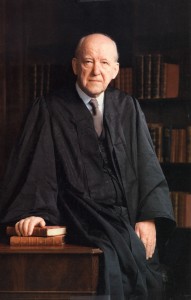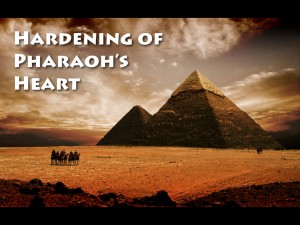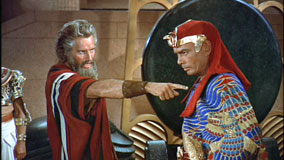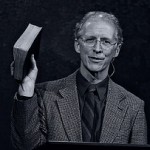 Author: Born in South Wales, Dr. Martyn Lloyd-Jones trained at St. Bartholomew’s Hospital and thereafter practiced as a physician and was assistant to the famous Lord Horder. After leaving medicine in 1927, he became the minister of a Welsh Presbyterian Church in Aberavon, South Wales. He was there until 1938 when he moved to London to share the ministry of Westminster Chapel in Buckingham Gate with the late Dr. G. Campbell Morgan, who retired in 1943. This ministry lasted for 30 years until Dr. Lloyd-Jones retired in August 1968. He then engaged in a wider preaching ministry and in writing until shortly before his death in 1981.
Author: Born in South Wales, Dr. Martyn Lloyd-Jones trained at St. Bartholomew’s Hospital and thereafter practiced as a physician and was assistant to the famous Lord Horder. After leaving medicine in 1927, he became the minister of a Welsh Presbyterian Church in Aberavon, South Wales. He was there until 1938 when he moved to London to share the ministry of Westminster Chapel in Buckingham Gate with the late Dr. G. Campbell Morgan, who retired in 1943. This ministry lasted for 30 years until Dr. Lloyd-Jones retired in August 1968. He then engaged in a wider preaching ministry and in writing until shortly before his death in 1981.
This article is taken from “Romans: Exposition of Chapter 11 – To God’s Glory” published by the Banner of Truth Trust.
“What then? Israel hath not obtained that which he seeketh for; but the election hath obtained it, and the rest were blinded (according as it is written, God hath given them the spirit of slumber, eyes that they should not see, and ears that they should not hear;) unto this day. And David saith, Let their table be made a snare, and a trap, and a stumblingblock, and a recompence unto them: let their eyes be darkened, that they may not see, and bow down their back alway.” Romans 11:7-10
In these solemn verses the Apostle sums up what he has previously said in this chapter. We certainly are entering into the realm of ultimate mystery. Let us therefore ‘take off our shoes from off our feet, for the place on which we stand is holy ground’. This is a passage that must be approached with reverence, with humility and with care. It does indeed hold us face to face with some of the most mysterious elements of biblical teaching, and of Christian teaching in particular. Let us bear in mind what the Apostle says at the end of the chapter. It is very applicable at this point — ‘O the depth of the riches both of the wisdom and knowledge of God!’
Now that is the spirit and the way in which we must approach this. We are dealing with the mind and the ways of God and we must therefore anticipate that we shall not be able to understand it fully. But a man who rebels because he does not understand the mind of God is one who puts himself immediately into the very category, I say, of these Jews whose tragic case and condition we are considering. Let us be careful. We are all too ready to speak our opinions and when we do not understand the mind of God we say that something seems to us to be wrong. That was the whole trouble with the Jews. God forbid, therefore, that we should be guilty of the terrible thing of which they were.
First of all, let us get clearly in our minds the basic point which the Apostle is making. He starts off by saying, ‘What then?’ — which means, ‘What therefore?’ In other words, ‘What is the position in the light of what I have been saying?’ His answer is that ‘Israel’ — that is to say the nation as a whole, ‘Israel hath not obtained that which he seeketh for’.
The word ‘seeketh’ is most important because it means ‘earnest seeking’. The Apostle fixed a preposition to the word that he used in order to give it emphasis. It was not a casual ‘looking at’ but ‘an earnest and persistent seeking’. In addition, he uses the present tense to indicate that Israel was still doing so. What was being sought? Well, there is no question but that it must be ‘righteousness’. They wanted to be right with God.
But he says that though they were ‘earnestly and persistently seeking that, they had not got it, whereas, on the other hand ‘the election hath obtained it’. Now here is a most interesting expression. He does not say ‘the elect’ have obtained it but ‘the election’. Why? If he had said ‘the elect hath obtained it’ we would tend to think of the elect as individuals, and we might fall into the error of thinking that it was as the result of what they were in themselves and what they had done. But in order to obviate any such possibility the Apostle refers to them as ‘the election’. This brings out the great point that it was because of what someone else had done that they had obtained it. This term emphasizes the one who ‘elects’ rather than any choice made by the people and so all the glory is to be given to God alone. The term also describes people corporately rather than individually and that is relevant to the whole argument.
The statement goes on to say ‘and the rest’ which means all in the nation apart from those chosen, ‘were blinded’. We must look at this word ‘blinded’ because all the commentators point out that it really should be translated ‘hardened’. While that is so, the Authorized Version translators had a good reason for translating it as ‘blinded’ as they did in 2 Corinthians 3:14, a parallel chapter, where we read, ‘But their minds were blinded’. I think we can justify this rendering in Romans by pointing out that in the quotation which the Apostle immediately adduces there is a reference to blindness: ‘According as it is written, God hath given them the spirit of slumber, eyes that they should not see’. It means, you see, that a callous mask has come over the eyes, and prevented their seeing. Why should there not be an opacity in the eye as well as hardening of the heart? There is, and he goes on from his quotations to elaborate that point. But the thing for us to notice is that this verb is in the passive voice, they ‘were blinded’. We will have to come back to this.
In verses 8 to 10 the Apostle substantiates his basic statement and he does a most extraordinary thing. In the eighth verse he takes a number of quotations from the Scripture and out of them he produces one fresh kind of statement. Here again is another instance of the divine inspiration of the Apostle. The same Spirit who had indited the original statements is here governing this great Apostle, and He is bringing the same meaning out of the three in the form of this one composite declaration. The verses quoted are Isaiah 29:10; Deuteronomy 29:4 and Isaiah 6:9.
Now what does Paul say? He says that ‘God hath given them the spirit of slumber’. This means that God had produced a kind of torpor or numbness in them. The meaning of the word he uses refers to an inability to use one’s faculties. If you are under the influence of a drug, you will be dimly aware of things happening around you, but you will not be able to understand them. You are not completely unconscious but you are not fully conscious either and it is the highest faculties of seeing, hearing, and understanding that are affected.
What the Apostle is saying is this: Israel has been in this condition before. We have these examples of it even in the time of Moses and the time of Isaiah, and it was still happening in Paul’s day. He says there was nothing new about this; and unfortunately, it is still happening. It is the explanation of the fact that the majority of the nation of Israel, all indeed apart from the remnant according to the election of grace, are refusing the gospel and are outside the Christian church.
Continue reading →
 Justin Taylor has written a short but helpful article, putting together the thoughts of other scholars on this theme:
Justin Taylor has written a short but helpful article, putting together the thoughts of other scholars on this theme:
 Author: Born in South Wales, Dr. Martyn Lloyd-Jones trained at St. Bartholomew’s Hospital and thereafter practiced as a physician and was assistant to the famous Lord Horder. After leaving medicine in 1927, he became the minister of a Welsh Presbyterian Church in Aberavon, South Wales. He was there until 1938 when he moved to London to share the ministry of Westminster Chapel in Buckingham Gate with the late Dr. G. Campbell Morgan, who retired in 1943. This ministry lasted for 30 years until Dr. Lloyd-Jones retired in August 1968. He then engaged in a wider preaching ministry and in writing until shortly before his death in 1981.
Author: Born in South Wales, Dr. Martyn Lloyd-Jones trained at St. Bartholomew’s Hospital and thereafter practiced as a physician and was assistant to the famous Lord Horder. After leaving medicine in 1927, he became the minister of a Welsh Presbyterian Church in Aberavon, South Wales. He was there until 1938 when he moved to London to share the ministry of Westminster Chapel in Buckingham Gate with the late Dr. G. Campbell Morgan, who retired in 1943. This ministry lasted for 30 years until Dr. Lloyd-Jones retired in August 1968. He then engaged in a wider preaching ministry and in writing until shortly before his death in 1981.
 12 But the LORD hardened the heart of Pharaoh, and he did not listen to them, as the LORD had spoken to Moses. 13 Then the LORD said to Moses, “Rise up early in the morning and present yourself before Pharaoh and say to him, ‘Thus says the LORD, the God of the Hebrews, “Let my people go, that they may serve me. 14 For this time I will send all my plagues on you yourself, and on your servants and your people, so that you may know that there is none like me in all the earth. 15 For by now I could have put out my hand and struck you and your people with pestilence, and you would have been cut off from the earth. 16 But for this purpose I have raised you up, to show you my power, so that my name may be proclaimed in all the earth. 17 You are still exalting yourself against my people and will not let them go.
12 But the LORD hardened the heart of Pharaoh, and he did not listen to them, as the LORD had spoken to Moses. 13 Then the LORD said to Moses, “Rise up early in the morning and present yourself before Pharaoh and say to him, ‘Thus says the LORD, the God of the Hebrews, “Let my people go, that they may serve me. 14 For this time I will send all my plagues on you yourself, and on your servants and your people, so that you may know that there is none like me in all the earth. 15 For by now I could have put out my hand and struck you and your people with pestilence, and you would have been cut off from the earth. 16 But for this purpose I have raised you up, to show you my power, so that my name may be proclaimed in all the earth. 17 You are still exalting yourself against my people and will not let them go. How shall we know God? How shall we know what God is like and how we are to think about him? When I ask myself this question, one response comes crashing into my mind with overwhelming certitude: human opinion counts for nothing. What you feel about the way God should be and what I feel about the way God should be counts for nothing. If someone rises up and makes a pronouncement about what they can believe and can’t believe about God, that is as significant in determining what is true about God as the creaking of a window in the wind. Human opinion counts for nothing in defining God.
How shall we know God? How shall we know what God is like and how we are to think about him? When I ask myself this question, one response comes crashing into my mind with overwhelming certitude: human opinion counts for nothing. What you feel about the way God should be and what I feel about the way God should be counts for nothing. If someone rises up and makes a pronouncement about what they can believe and can’t believe about God, that is as significant in determining what is true about God as the creaking of a window in the wind. Human opinion counts for nothing in defining God.